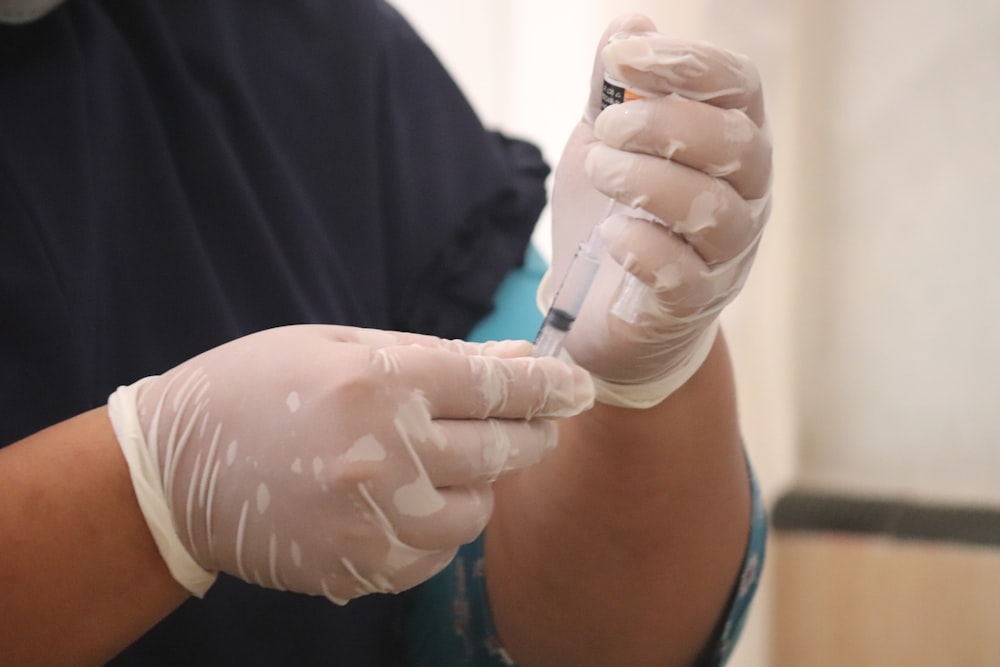
Antibodies are naturally occurring proteins that recognize foreign material in the body, and trigger a defense by coordinating with the body’s immune system. Checking antibody levels is a common screening test used to determine how well your body responds to an infection or a vaccination. Antibodies can prevent a virus from infecting new cells or from replicating and making more copies of itself.
When antibodies are made after a person gets sick, their immune system remembers fighting that particular pathogen. During subsequent exposures to the same virus, that recall helps their body fight off the infection faster. Antibodies might also be useful therapeutically (for treatment) because they can block viruses from infecting normal cells or kill pathogenic viruses outright. Antibodies wane over time, and the rate at which they do so varies from disease to disease, and from person to person. Below are the reasons why you should consider testing your COVID-19 antibody levels:
Testing Your Antibody Levels Helps Explain Positive Results
A positive SARS-CoV-2 antibody test result suggests that you have been vaccinated or have almost certainly had COVID-19 at some point. However, note that positive results of these tests are not meant to be used for diagnosing acute COVID infection. Those with weaker immune systems may be slower to produce antibodies and may not produce adequate levels of antibodies. That’s why it is crucial to get hold of your antibody level after vaccination, a Circle Snapshot COVID-19 Antibody Test tells you exactly how protected you are from the virus.

Describes Negative Results
A negative antibody test means you have not been vaccinated or infected with COVID-19 previously. It could also mean you have been recently vaccinated or infected, but you have not yet developed detectable antibodies.
There are several reasons why negative antibody test results do not conclusively indicate you have not had or do not have an infection with SARS-CoV-2. For example, the test may not detect your antibody response right away since it typically takes 2-3 weeks for your body to make antibodies after the first dose of vaccination or infection. Also, the levels of antibodies in the blood may decrease over time and become too low to be detected.
Helps You Understand the Effectiveness of the Vaccine
Antibody values do not directly indicate whether vaccination has been effective. Vaccination may not prevent you from getting the virus, but it will reduce symptoms and shorten the duration of the illness if you do get the virus. The COVID-19 antibody test provides an accurate determination of serum and plasma levels of the COVID-19 antibody, a quantitative report, and information about the effectiveness of vaccination.
Accurate antibody testing for COVID-19 allows people who’ve recovered from the disease to donate their plasma, compensating others in need of the treatment.
How Does the Antibody Test Work?
When testing your antibody levels, the clinician will use a needle to draw blood. Your blood sample is then sent to a lab where technicians are trained to look for specific antibodies to SARS-CoV-2, the virus that causes CVID-19:
- IgM antibodies, which appear early in an infection.
- IgG antibodies, which appear later on.
The IgG antibodies specifically bind to the spike proteins of the virus and infected cells. This marks the virus and infected cells to be destroyed by your immune system, and blocks them from infecting other healthy cells. This generates a strong neutralizing response in stopping further invasion in your body and spreading the virus to others.
There is evidence that most people develop IgG antibodies to the new coronavirus 14 days after symptoms begin, although they may remain in the blood for longer. There is currently no way to determine whether someone had SARS-CoV-2 previously without conducting antibody tests. Not all people who are infected with the virus experience or detect symptoms.
If you had a positive antibody test for SARS-CoV-2 infection, it does not guarantee that you are fully immune to the virus, as it remains unknown whether having antibodies will protect you from future infection.

Difference between Diagnostic Test and Antibody Test
COVID-19 diagnostic testing such as RT PCR allows people diagnosed with the virus to get treatment earlier. Seclusion or quarantine can be instituted sooner, halting further transmission.
Although it is accurate most of the time, the COVID-19 diagnostic test is not guaranteed to catch every case of the virus. A person who tested negative can actually be infected, and a person who tested positive might not be infected at all. Therefore, people must continue to follow precautions such as frequent hand washing, not going out in crowds, wearing a mask and regularly sanitizing to prevent the spread of COVID-19. If you come down with symptoms of swine flu, keep away from others until you are better.
Several factors affect the accuracy of antibody tests. Some tests may not detect antibodies early in a vaccination or an infection before the immune response has begun to build up. Testing is accurate only when done at the right time, usually after 2 to 3 weeks of the first dose of vaccination or COVID-19 symptoms. Testing too soon can return results that are not as reliable.
Testing Your Antibody Levels: The Bottom Line
It is very important to test COVID-19 antibody levels to enjoy an active, healthy lifestyle. An untreated low COVID-19 antibody level could potentially have a drastic impact on the quality of your life. The more you know about your health, the more likely it is that you’ll take preventative measures to stay healthy, including taking extra safety precautions. Monitoring your COVID-19 antibody levels will allow you to maintain optimal values and prevent any unwanted complications that may arise from a compromised immune system.
References:
- Antibody (Serology) Testing for COVID-19: Information for Patients and Consumers | FDA.” US Food and Drug Administration, 24 February 2022, https://www.fda.gov/medical-devices/coronavirus-covid-19-and-medical-devices/antibody-serology-testing-covid-19-information-patients-and-consumers. Accessed 26 February 2022.
- Using Antibody Tests for COVID-19 (CDC) – https://www.cdc.gov/coronavirus/2019-ncov/lab/resources/antibody-tests.html
- Antibody (Serology) Testing for COVID-19: Information for Patients and Consumers (FDA) – https://www.fda.gov/medical-devices/coronavirus-covid-19-and-medical-devices/antibody-serology-testing-covid-19-information-patients-and-consumers
- Test for Past Infection (CDC) – https://www.cdc.gov/coronavirus/2019-ncov/testing/serology-overview.html
- Interim Guidelines for COVID-19 Antibody Testing (CDC) – https://www.cdc.gov/coronavirus/2019-ncov/lab/resources/antibody-tests-guidelines.html
- Interim Guidelines for COVID-19 Antibody Testing (CDC) – https://www.cdc.gov/coronavirus/2019-ncov/lab/resources/antibody-tests-guidelines.html
- Convalescent Plasma (NIH) – https://www.covid19treatmentguidelines.nih.gov/therapies/anti-sars-cov-2-antibody-products/convalescent-plasma/
- Using Antibody Tests for COVID-19 (CDC) – https://www.cdc.gov/coronavirus/2019-ncov/lab/resources/antibody-tests.html
- Test for Past Infection (CDC) – https://www.cdc.gov/coronavirus/2019-ncov/testing/serology-overview.html






